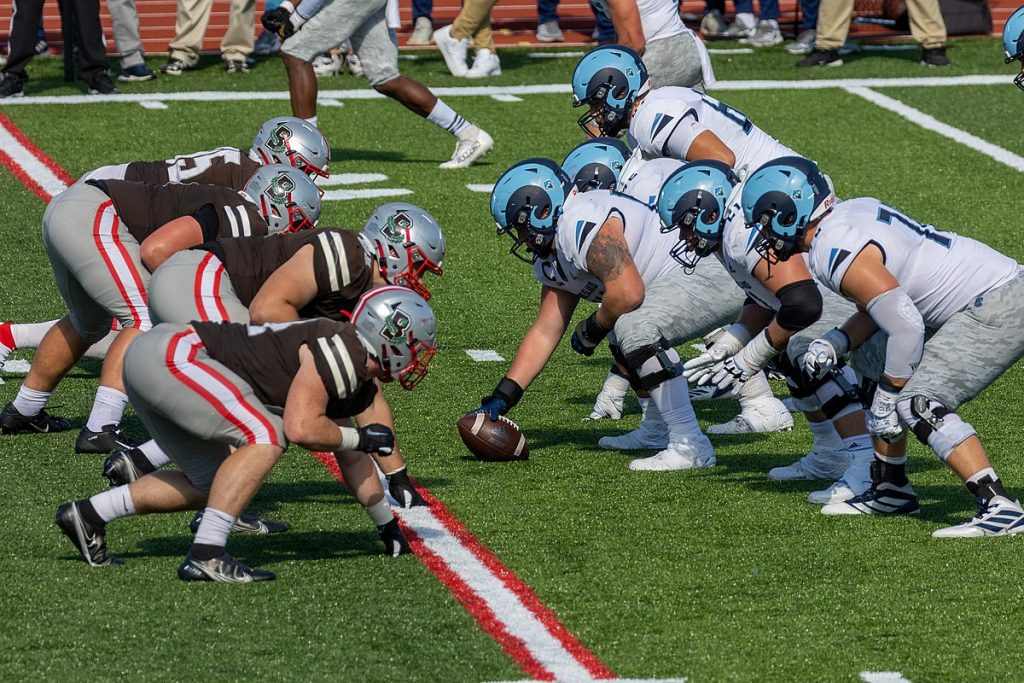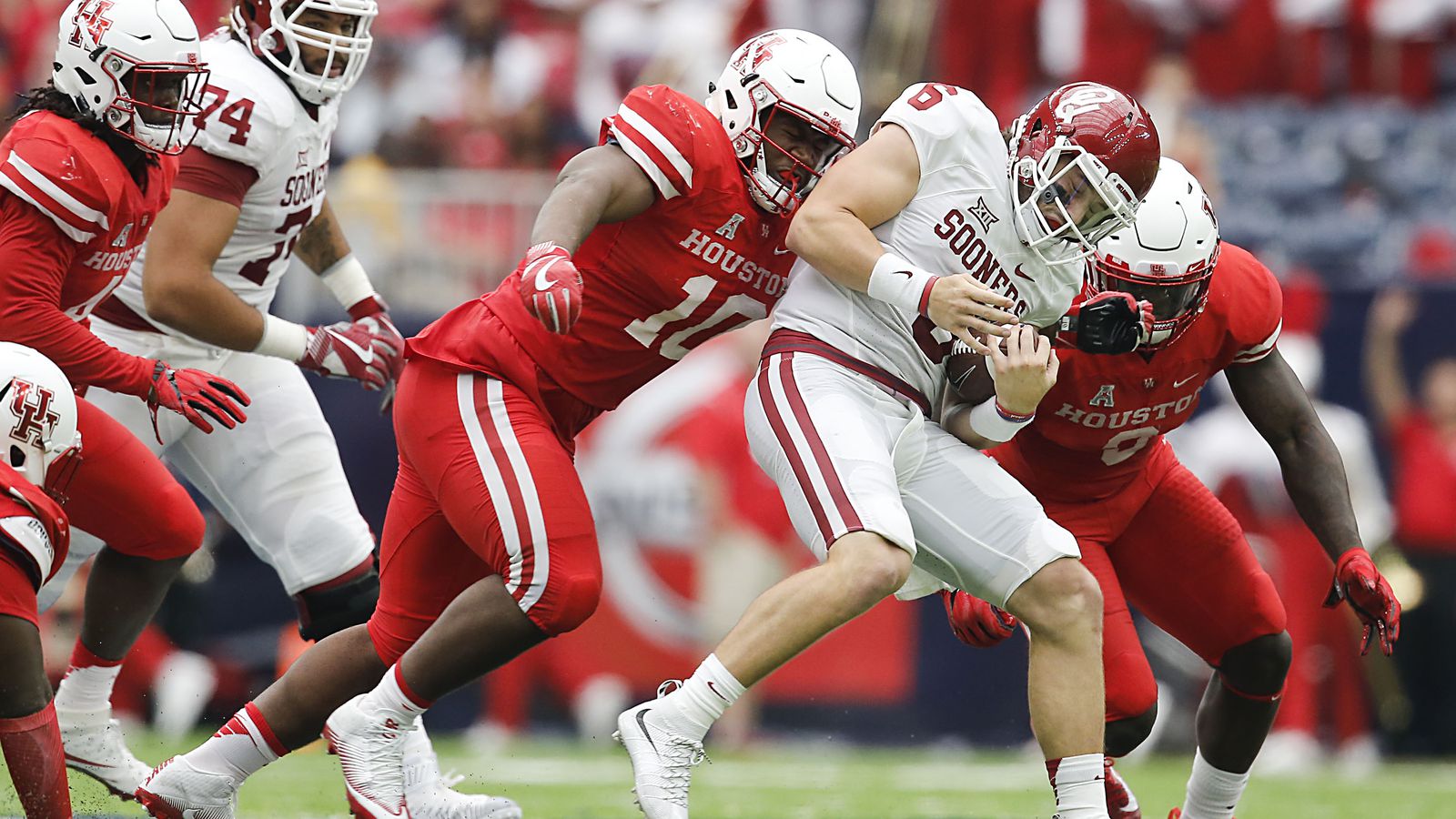Table of Contents
Texas and Oklahoma have had a rivalry for decades, leading many Texans to openly dislike or even “hate” their neighbor to the north. This perceived rivalry and animosity have become embedded in the culture and identity of both states. But Why Do Texans Hate Oklahoma so much? Several factors contribute to this phenomenon.
Why Do Texans Hate Oklahoma?
- Historical border disputes left Texans feeling cheated out of Western lands.
- Texans see themselves as rugged pioneers while viewing Oklahoma as backward.
- Oklahoma was once part of Texas before statehood.
- Intense football rivalry stokes cultural animosity between the states.
- Competition over economic power and resources like oil and water.
- Texans stereotype Oklahomans as unsophisticated and make offensive jokes.
- Political differences have increased tensions between the states.
- Many Texans are seen as arrogant and dismissive toward Oklahoma.
- Oklahomans resent the perceived disrespect and condescension from Texas.
Historical Tension and Border Disputes
Much of the tension between Texas and Oklahoma stems from historical disputes and rivalries. After Texas became an independent republic in 1836, its border with the United States was originally set at the 100th meridian, which runs through what is now the Oklahoma panhandle. However, when Texas joined the Union in 1845, it gave up its claim to this land.
Resentment in Texas emerged as the United States began to allow white settlement of these lands that had previously been reserved for Native American tribes. The cultural identity of Texas was predicated on being rugged pioneers on the frontier, so giving up its western lands to another entity was seen as an affront. This seeded long-lasting feelings of animosity.
Border disputes also emerged along the Red River, which forms the southern border between the two states today. Disagreements over the precise boundary line along this twisting river led to armed confrontations between Texas and Oklahoma law enforcement in the late 1800s. The U.S. Supreme Court ultimately resolved the issue in Oklahoma’s favor in 1896, but it left many Texans feeling their state had been cheated.
Read also: Why Do Guys Stare at Me But Never Smile
Different Cultural Identities

Texans see themselves as independent pioneers with a strong sense of state pride. Oklahoma, in contrast, developed more gradually through the settlement of Native American lands.
These diverging settlement patterns and histories shaped distinct cultural identities. Many Texans look down on Oklahoma as lacking the rugged frontier spirit of Texas. Stereotypes of Oklahoma as “backward” or a boring “flyover state” permeate Texas culture.
Texans also pride themselves on being one of the wealthier states, while Oklahoma has a reputation as a poorer, more “working class” state. This breeds a sense of superiority or dismissiveness from many Texans.
Oklahoma Once Part of Texas
It also breeds resentment that a large chunk of Oklahoma was once part of Texas in the early 1800s. This region known as Greer County was ceded to Oklahoma in a Supreme Court ruling in 1896. For Texans who remember this history, it feels like Texas was robbed of its rightful territory.
Adding insult to injury, Oklahoma has since adopted symbols of its cowboy and Native American heritage, which Texans feel infringes on their own Western identity. For example, the Native American “cowboy” sculpture erected atop the capitol building in Oklahoma City in 2002 was decried by some Texans.
Football Rivalry

Another major factor stoking the rivalry is competition between the University of Oklahoma (OU) and University of Texas (UT) football teams. This contentious rivalry dates back over a century.
The two teams have played annually since 1929, vying for the coveted Golden Hat trophy. With both consistently ranked as college football powerhouses, the matchup known as the Red River Showdown has become one of the biggest rivalries in college sports.
For hardcore fans, it’s an intense clash of state pride and identity. Victories and defeats on the football field translate into bragging rights between the states. Even when the Longhorns or Sooners aren’t vying for a national title, the cultural importance of beating the rival team remains potent.
Industry and Resource Competition
Beyond football, Texas and Oklahoma have also competed over economic power and resources. In the early 1900s, Oklahoma emerged as a major producer of cotton and oil, challenging Texas’ dominance of these valuable industries.
The states batted over bringing oil pipelines and refineries to their state in order to reap tax revenues. This kicked off political squabbles and PR campaigns trying to woo the oil industry.
More recently, the states have clashed over access to water resources. With much of Texas suffering from droughts, there have been political battles over acquiring water rights from Oklahoma.
Cultural Stereotypes and Jokes
The cultural rivalry and animosity have also perpetuated cruel stereotypes and jokes about Oklahomans in Texas.
Oklahoma is portrayed as an unsophisticated, barren wasteland of rednecks and hayseeds. Offensive jokes often depict Oklahomans as dumb or inbred. More accepting Texans still view Oklahoma as a boring, uncultured place lacking any identity beyond football and tornadoes.
These negative stereotypes and dismissive attitudes get passed from generation to generation in Texas, keeping old prejudices alive. Of course, most Oklahomans resent being looked down upon or ridiculed by their southern neighbors.
Different Political Values

In recent decades, Texas and Oklahoma have grown farther apart politically. As Texas has turned solidly Republican, Oklahoma remains more bipartisan, recently electing Democrats as governors and senators.
This amplifies cultural stereotypes of Texas as more conservative with Oklahoma as “behind the times.” Differing policy directions, especially on hot-button issues like abortion or LGBTQ rights, also increase tensions.
With Texas receiving more national attention as a political and economic powerhouse, this also feeds disdain from Oklahoma, which resents its influential neighbor. Some Oklahomans see Texas as pretentious and domineering within the region.
Perceived Arrogance and Aggression
At the core, many Oklahomans argue the rivalry persists because of actual or perceived slights and aggression from Texas against its northern neighbor.
Some Texas politicians and business leaders are seen as dismissive or arrogant toward Oklahoma, feeding a sense of disrespect. Given its smaller economy and population, Oklahoma often feels overlooked or mistreated by mighty Texas, further stoking the rivalry.
Even the term “friendly rivalry” seems condescending to some Oklahomans, as if Texas graciously tolerates its poor cousin. The perceived arrogance and cockiness of Texas, especially on the football field, amplifies resentment and motivates Oklahomans to passionately strike back when possible.
So the rivalry endures, passed down as a core part of regional identity. Texans love to poke fun at Oklahoma and revel in their cultural dominance, while Oklahomans eagerly fight back and defend state pride. The rivalry may seem irrational or exaggerated at times, but such are the foundations of sports and cultural allegiances.
Will the Rivalry Ever End?
Can Texans and Oklahomans ever overcome their hatred and recognize common bonds and interests? While the rivalry shows no signs of abating, future generations may tone down the more vicious aspects.
As political boundaries and identities evolve in a more interconnected world, younger people on both sides seem less invested in old grudges. Shared challenges like economic change, climate threats, and public health could inspire more cross-border collaboration.
Still, as long as Austin and Norman field competitive football teams, the Texas-Oklahoma rivalry likely won’t be hanging up its spurs anytime soon. The Red River Showdown endures as a highlight of the college football season, pitting passionate fans against each other.
Texans and Oklahomans will continue trash-talking, eagerly awaiting the next big game to prove their state’s superiority. But hopefully the rivalry’s uglier sides, like mean-spirited insults and prejudice, will fade over time.
Healthy competition and pride in one’s home are natural. Still, decency suggests avoiding unfair stereotypes or letting sports rivalries poison wider relations. There are certainly qualities to admire in both states and ample opportunities to cooperate as neighbors.
So sooner or later, this endless Texas-Oklahoma feud seems ripe for a partial truce. Football fanatics can keep the on-field rivalry crackling, while leaders focus on building mutual understanding and prosperity. Because at heart, these two storied states have always been more similar than different.




